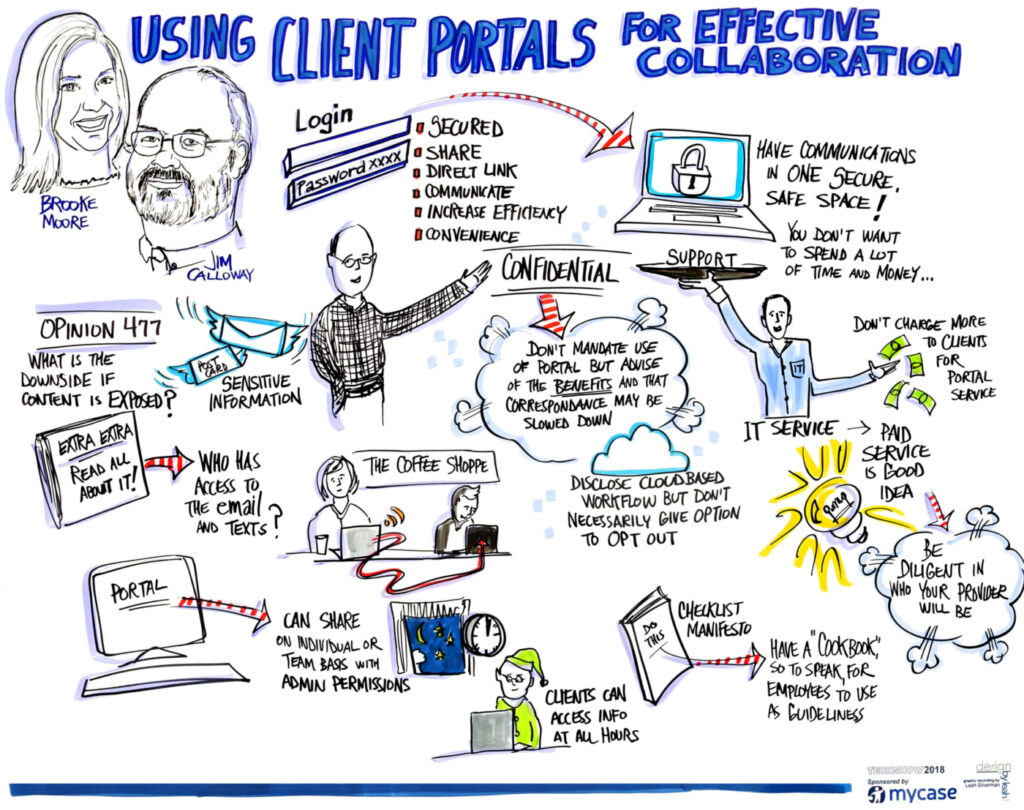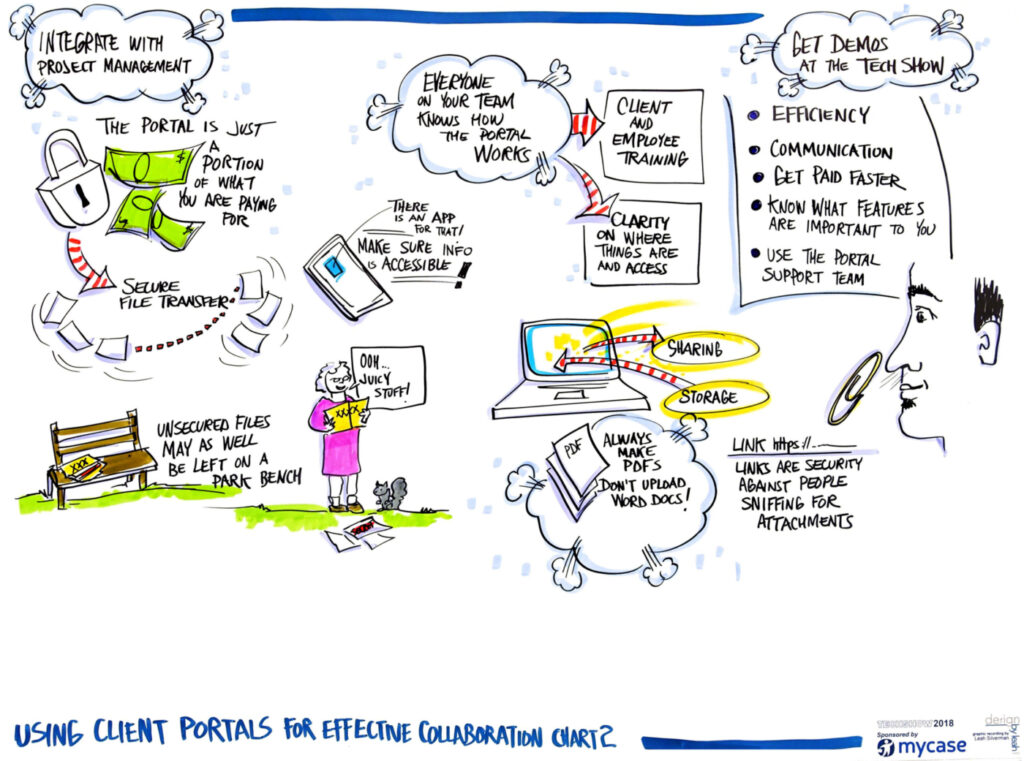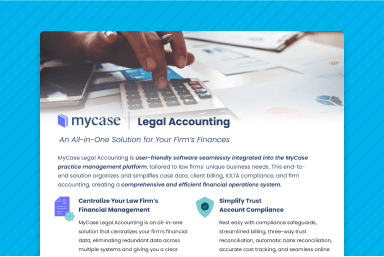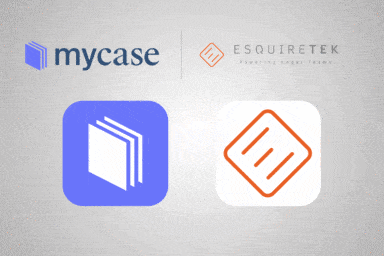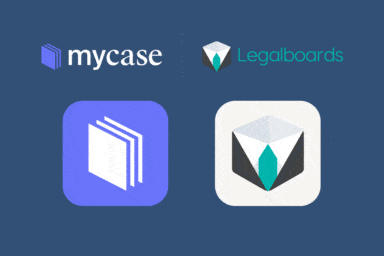How Lawyers Can Use Client Portals for Effective Collaboration with Clients
In the wake of the news last week that European researchers discovered major vulnerabilities in the PGP email encryption standard most often used to encrypt email, what’s a lawyer to do? After all, secure client communication has become all the more important since the release of the ABA’s Formal Opinion 477 last year, in which the Ethics Committee concluded that unencrypted email may not always be sufficient for client communications. Specifically, the Committee advised that lawyers must assess the sensitivity of information on a case-by-case basis and then choose the most appropriate and sufficiently secure method of communicating and collaborating with clients. Options offered included encrypted email and “the use of a Virtual Private Network, or another secure internet portal.”
In other words, now that encrypted email is in question, secure client portals, like the ones built into law practice management software, are becoming even more appealing. Sounds interesting, right? But maybe you’re not as up-to-date on the ins and outs of client portals as you’d like to be. Never fear! This very topic was covered earlier this year at the ABA Techshow in Chicago. During this presentation, “Using Client Portals for Effective Collaboration With Clients,” Jim Calloway and Brooke Moore discussed everything you need to know about using client portals in your law firm.
Email is inherently unsecure
At the outset, the speakers stressed the security issues inherent in email. They explained that when you use unencrypted email to communicate with clients, it’s no different than leaving your confidential client files unattended on a park bench. The lack of encryption means that anyone interested in viewing the contents of the email and any attachments can easily do so.
Another problem with email is that you never know who has access to the emails. Employers or disgruntled exes can easily access emails, read, and copy any confidential emails sent to your client. That’s why client portals are a better, more secure way to communicate with clients.
The many benefits of online client portals
According to the presenters, client portals offer a host of benefits that make them a much better communications tool for lawyers. And security – certainly one of the most important features – is just the tip of the iceberg. Online client portals also offer convenience, easy accessibility, and collaboration features.
Some of the most notable benefits were discussed by the speakers and include:
- Superior security
- Easily accessible via a direct link from any internet-enabled device
- Built-in ability to share information and documents
- Enhanced communication capabilitiess and threaded, easy-to-read discussions
- Streamlined communication and collaboration increases efficiency
- 24/7 convenient access to information
Choose the right portal technology for your firm
Of course, choosing the right client portal tool for your law firm is key. That’s why the presenters stressed the importance of carefully vetting the provider that offer a client portal, which is more often than not a law practice management software solution.
When choosing a law practice management provider whose software includes a client portal, there are a number of areas to focus on in order to ensure that you choose the right tool for your firm. The presenters offered the following tips to help guide your selection process:
- Make sure to demo the software and take advantage of any free trials offered
- Have a thorough understanding of the features that are most important to your firm
- Ensure that the software is intuitive and efficient
- Test drive the communication features
- Make sure the portal includes the ability to invoice and receive client payments
Implementing client portals in your firm
Last but not least, it’s important to ensure that firm employees and your clients are fully on board and understand how to make the most of the client portal. You’ve invested in a time-saving tool for your law firm, but it will go to waste if no one takes advantage of it.
For your firm’s employees, make sure that they understand the features of the client portal software and how to integrate the portal into their workflows. Provide them with guidelines designed to help them implement the portal into their daily routine. Rest assured, the time spent at the outset to educate them about the benefits and features of the portal will pay off tremendously in the long run and help your firm realize the value of its investment.
With clients, it’s important to encourage portal use at the very start of each case. Explain how the portal will benefit them, stressing the security features, the ease of use, and 24/7 access to case-related information. Provide them with a guide that showcases the main features of the portal and explains how to use it. As the presenters explained, don’t mandate use of the portal, but emphasize that if the portal isn’t used for communication, response time will necessarily be slower. Finally, encourage them to dive in and use it, while stressing that the portal is for their benefit and is easy-to-use and convenient.
Client portals are designed to be intuitive, efficient, and secure – that’s why they’re the wave of the future. Once your clients and employees login and are able to easily access and share information, they’ll quickly realize the value of using it to communicate. You might just be surprised at how quickly they adapt to it! And then, before you know it, your law firm will be well on its way to taking advantage of the many benefits that client portals have to offer.
